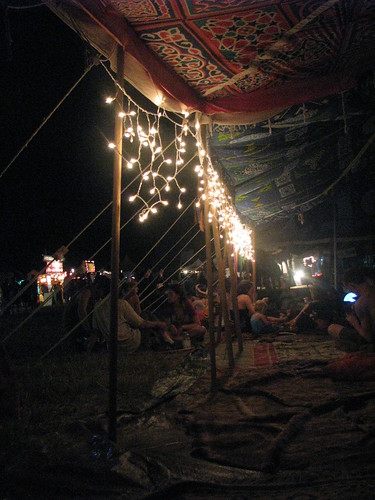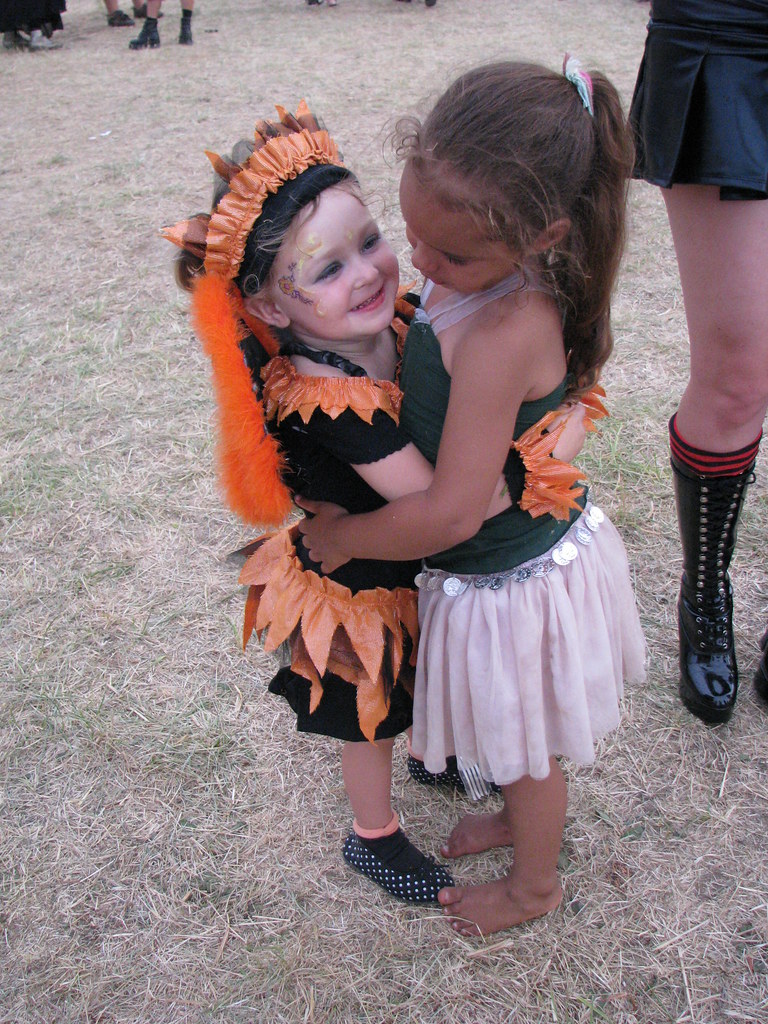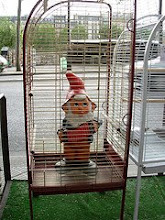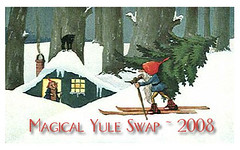
Anyone who knows me knows I spend a lot of time thinking about food. I grow it, put it up, prepare it, shop for it, and eat it. Usually, but not always, with a lot of thought behind it. I pretty much know how I feel about food, both on a personal and a global level, but it's not something that I can sum up in just one word. It's both more complicated than that, and in my mind, it's not complicated at all. Unless I need to explain it to someone else.
It would be lovely if I could just say "I'm a *insert eating style of your choice*" and be done with it. But I can't. I do, sometimes, just to save myself the trouble of explaining the details. I'll say "I'm a vegetarian." or "I don't do dairy." or some other comment, and those things are at the same time true and not true.
"I'm a vegetarian." Mostly. But I do eat fish. And sometimes chicken because when I'm out and about the chicken item on the menu might be the healthiest choice offered even if I'd choose a nonchicken item if there was one that wasn't deep fried or covered in cheese or.... I used to be a vegetarian, long ago in my twenties. I let it go when family grew. But even in our least vegetarian years, our family rarely bought or ate much red meats and had vegetarian entrees more nights than naught.
"I'm a vegan." My recent efforts to clean up my diet and lifestyle has had me realizing how much of a dairy allergy I truly have. I stopped eating it because I didn't like how much it caused me to cough and get stuffy sinuses. But I can tolerate and do eat some. Nonfat yogurt in moderation doesn't seem to cause any symptoms. Feta cheese is apparently from goats and is a treat on salads from time to time. I stopped eating egg yolks and then eggs altogether because of the cholesterol (although I'm not convinced it really is a problem) but now I'm avoiding them more because it bothers me to think of the conditions under which chickens are kept in the egg laying industry. If I could get them from a neighbor who's chickens cluck about in the back yard, I'd buy them again. Still, I don't sweat the occasional egg I know is in baked goods.
"I'm a locavore." A locavore is someone who considers the geographic location of their food sources. They try to buy "local". And you can't get more local then growing your own food, which I do as much as I can in the local short and erratic growing season and my own small growing space. Living here between the mountains and high desert chapparral, true local eating would require a lot of venision and free range beef. So, yeah, that's a problem. If I widen my perimeter a bit, I can try to buy California fruits and vegetables instead of ones from South America, I can buy my coffee from northern California roasters instead of chain brand. But I also take into consideration things like the social ethics of the company and sometimes I have to factor in the price.
And then there's the Slow Food Movement, which asks us to consider not just what we eat but how we eat. They eschew fast food, fast life in favor of slowing down and enjoying the process of eating from shopping cart to dinner plate. I was exposed to this concept long before it became a named movement, first at my grandmother's table and later when I read (yes, READ) my treasured first edition copy of Laurel's Kitchen cookbook.

All the proponents of these different food movements and choices do overlap of course. But many people seem to stand solidly in the middle of at least one of them. I do not. Vegetarianism appeals to me but I also love the history and, let's be honest here, taste of farm animals. I'm old enough and lucky enough to have grown up remembering family farms with happy and respectfully raised and processed animals and plants. I know that almost all the foods we buy in supermarkets these days do NOT come from this sort of environment. But if none of us ever ate meat, there would be no reason to continue to breed and appreciate many animals that simply do not have any other niche in the natural world. You can't release a chicken or a cow "into the wild".
And are we going to give up the rest of the lifestyle choices that come with animal production? Are plastic sneakers really healthier for the environment than a good pair of leather shoes? We can keep a dog healthy on a vegetarian diet but not a cat. Do we give up our beloved pets? And what about people like a couple of my friends who have severe allergies or can't tolerate gluten? They tolerate meat in their diet, thrive on it indeed, on levels that I know would make my stomach doing it's version of the French Revolution.
To my mind, the best course of action would be for people to change the amount of animal foods they eat so that we could be assured that animals would once again be raised in a healthy and humane environment. That would mean no daily Big Macs or omelettes for breakfast. It would mean paying far higher prices for animal protein and purchasing it for special occasions. If you consider the sheer volume animal products sold daily, even a slow, incremental change towards less meat and dairy would make a noticeable difference in the market place.

I like the idea of eating locally but, as I mentioned, not everyone lives in an environment where they can grow their own food or even shop at a farmer's market. Cities, large stretches of the American southwest, even modern suburbs with their ridiculous codes and restrictions, make it difficult. Too, I like the idea of supporting local farmers but I also like the idea of supporting the people in third world countries trying to develop sustainable and organic industries and agricultures that can support their way of life and stop corporate farming. We are ultimately, globally, all in this together.
I do enjoy "slow food". I enjoy growing it, putting it up, creating meals for myself and my family, and taste and quality truly are more important to me than simply quelling the hunger. (I can say this of course from the safety of a middle class lifestyle). Caught between "catching a bite" because I'm getting hungry and staying hungry until I can find something worthy of eating, 99% of the time I chose the latter course. (99% of the time Hubby chooses the former.) But even this is philosophy has it's exceptions. Travel makes it difficult. And for me, football games are a problem. There's virtually nothing at William's football games that I would choose to eat or drink (even the bottled water - I don't buy water in plastic bottles when we have amazing water straight from our tap) but visiting the snack bar is a way of supporting the local team.
The one movement I can unequivocally say I stand behind, even if I can't say I abide by it 100% in real time, is the Organic Foods movement. I've gardened organically for over 30 years now, back when us organic gardeners were considered extremists and downright nutcases. (although there are still people who try to argue that - like the pesticide industry trying to tell Michelle Obama her organic garden at the White House was unAmerican!!!) I do try to buy organic as much as I can but I live in a small town with few shopping options and sometimes I just get tired of having to read every label and research every company and .... sometimes I just toss the cheapest, generic can of beans into my cart, okay?
So, what's for dinner? It depends. When someone asks me what I am in relation to food - vegetarian, carnivore....? well, the answer depends as well. On what I'm trying to communicate at any particular moment. Am I trying to explain to the waiter that I don't want cheese on anything on my plate? Am I trying to fill out a grocery list for when the rest of the family descends on us, with a variety of diet preferences? Am I arguing why it's worth growing your own food to someone with no sense of the bigger picture? I'm not lying when I pick and choose what to tell people. I'm just simplifying. Because although I believe in simple foods, the food industry and food selection.... well, it's complicated.


































































